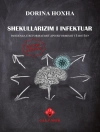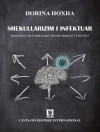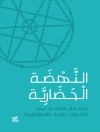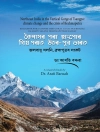International experts in the field of oil spill response, including reprsentatives from 26 NATO countries, participated in a workshop in Canada to discuss their experience in the development and application of current and emerging technologies for oil spill response in the marine environment. These presentations which form the basis of chapters in this book provide a practical viewpoint of methods used to deal with oil spills under the variety of environmental conditions found in the marine environment. In particular, focus is given to the evaluation of oil spill countermeasures for use under arctic conditions in light of anticipated regional increases in marine traffic (e.g. Northwest Passage) and industrial activities (e.g. offshore oil and gas exploration) in the future.
This book provides a timely international perspective on applied research and development, technology transfer, and “lessons learned” from field trials and actual case studies associated with recent spill events. Topics include Preparedness/Contingency Planning, (Eco-terrorism); Oil Spill Fate and Transport (Environmental Persistence, Remote Sensing, modelling, Biodegradation), Biological Effects (Environmental Effects Monitoring and Environmental Risk Assessment); and Operational Response (Containment/Recovery Treating Agents, Shoreline Cleanup, In-situ Burning, Emerging Response Strategies). This book provides a synopsis as to the methods currently employed to deals with spills and an insight on future technologies under development.
Inhaltsverzeichnis
Summary Report. Introduction.
Arctic Research Issues.
Oil Spill Response And The Challenges Of Arctic Marine Shipping: An Assessment By Tile Arctic Council; A. Tucci.- Oil Spills In The Arctic: A Review Of Three Decades Of Research At Environment Canada; B. Hollebone & M.F. Fingas.- Oil Under Ice Detection: What Is The State-Of-The- Art?; R. Goodman.- Practical And Effective Technologies For Oil Spill Recovery Operations In Arctic Conditions; J.P. Mackey.- In-Situ Burning For Oil Spills In Arctic Waters: State-Of-The-Art And Future Research Needs; S. Potter & I. Buist.- Recent Mid-Scale Research On Using Oil Herding Surfactants To Thicken Oil Slicks In Pack Ice For In-Situ Burning; I. Buist et al.- Weathering Of Oil Spills Under Arctic Conditions: Field Experiments With Different Ice Conditions Followed By In-Situ Burning; P.J. Brandvik et al.- Dispersant Effectiveness Experiments Conducted On Alaskan Crude Oils In Very Cold Water At The Ohmsett Facility; J.V. Mullin.- Enhanced Chemical Dispersion Using The Propeller Wash From Response Vessels; T. Nedwed & W. Spring.- Evaluation Of Arctic In-Situ Oil Spill Response Countermeasures; K. Lee.- Oma Formation In Ice-Covered Brackish Waters: Large-Scale Experiments; D. Cloutier & B. Doyon.- Joint Industry Program On Oil Spill In Arctic And Ice Infested Waters: An Overview; S.E. Sørstrøm et al.- Countermeasures For The Beaufort Transition Season; L. Solsberg.-
Oil Spill Countermeasures. New Oil Containment Technology For Fast And Narrow Waters; J. Allers, D. Trites.-Viscous Oil Pumping Technology And Annular Water Lubrication Techniques; J.P. Mackey.- Development Of A Strategy For Offshore Use Of Dispersants In Norwegian Waters; I. Singsaas et al.- French Sea Trials On Chemical Dispersion: Depol 04 & 05; F-X. Merlin.- Dispersant Research In A Specialized Wave Tank – Mimicking The Mixing Energy Of Natural Sea States; A.D. Venosa et al.- Wave Tank Studies On Chemical Dispersant Effectiveness: Dispersed Oil Droplet Size Distribution; Z. Li et al.- Wave Tank Studies On Formation And Transport Of Oma From The Chemically Dispersed Oil; K. Lee et al.-
Biological Effects And Monitoring Habitat Recovery. Optimal Nutrient Application Strategies For The Bioremediation Of Tidally-Influenced Beaches; M.C. Boufadel et al.- Benthos Community Monitoring Of A Dumping Area During Liquid Natural Gas Plant Construction; A.D. Samatov & V.S. Labay.-Oil Fingerprinting And Spill Source Identification; Z. Wang.-What Compounds in Crude Oil Cause Chronic Toxicity To Larval Fish?; P. Hodson et al.- Potential Impacts Of An Orimulsion Spill On Marine (Atlantic Herring; Clupea Harengus) And Estuarine (Mummichog; Fundulus Heteroclitus) Fish Species In Atlantic Canada; S. Courtenay et al.- Effectiveness Of Dispersants For Coastal Habitat Protection As A Function Of Types Of Oil And Dispersant; Q.Lin & I.A. Mendelssohn.- How Clean Is Clean?: Development Of Monitoring Methods To Determine Environmental And Socially Acceptable End-Points Of Clean-Up; J. Fejes et al.-
Modelling, Fate And Transport. Microbial And Abiotic Removal Of Hydrocarbon Components In Oil Tanker Ballast Water Processed By The Alyeska Ballast Water Treatment Facility In Port Valdez, Alaska; J.R. Payne et al.- Oil Spill Drift and Fate Model; M. Sayed.- Modelling of Oil Droplet Kinetics under Breaking Waves; Z. Chen.- The The Necessity of Applying Sar Imagery to Oil Spill Modelling in Cases of Data Obfuscation; M. Perkovic.-
Risk Assessment/Contingency Planning/Operational Response/Policy. Prevention of Oil Spills caused by Premeditated Negative Influence; V. Krivilev.- Spillview: A Support To Decision-Making Software In Emergency Response To Marine Oil Spill; M. Blouin.- Accidental Marine Pollution In Belgium: The Emergence Of Response Strategies; T.G. Jacques & F. Delbeke.- Dimensioning Of Norwegian Oil Spill Preparedness – Focusing On The Arctic North Norway And The Barents Sea












